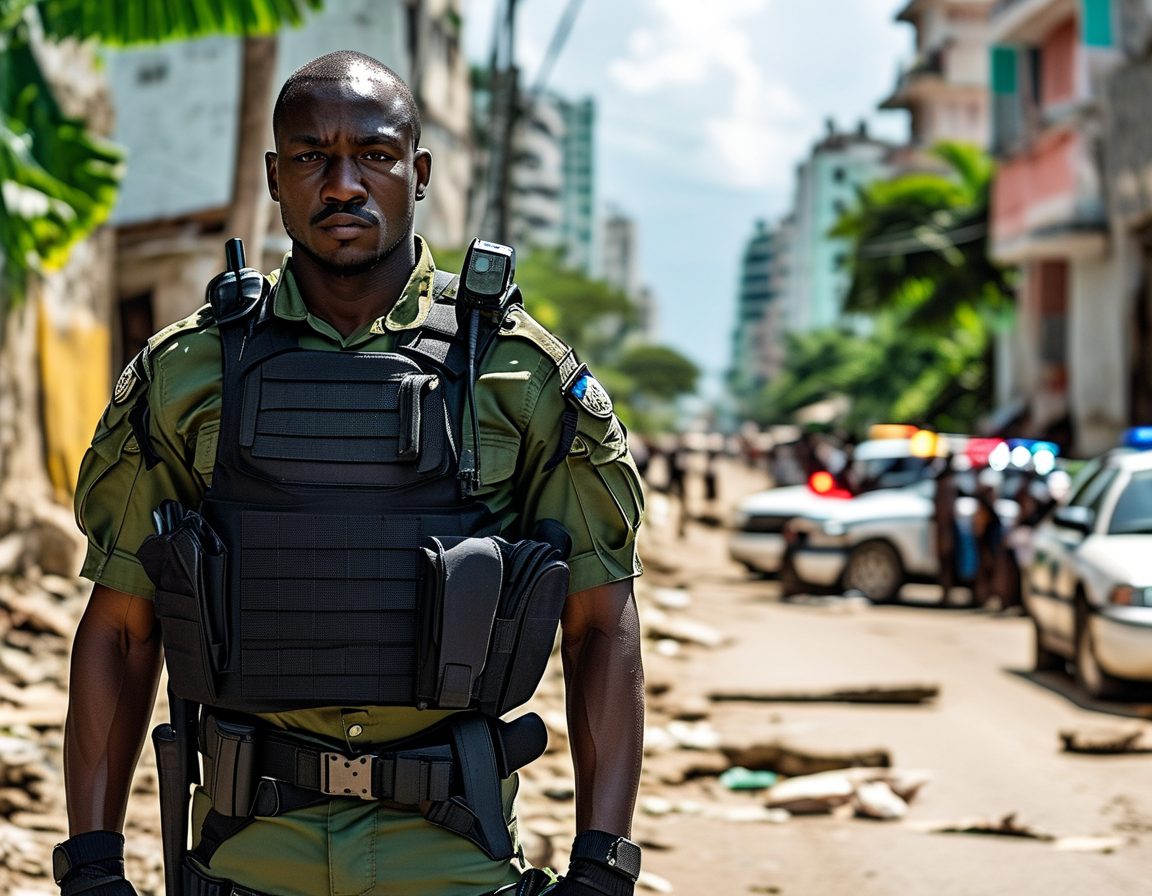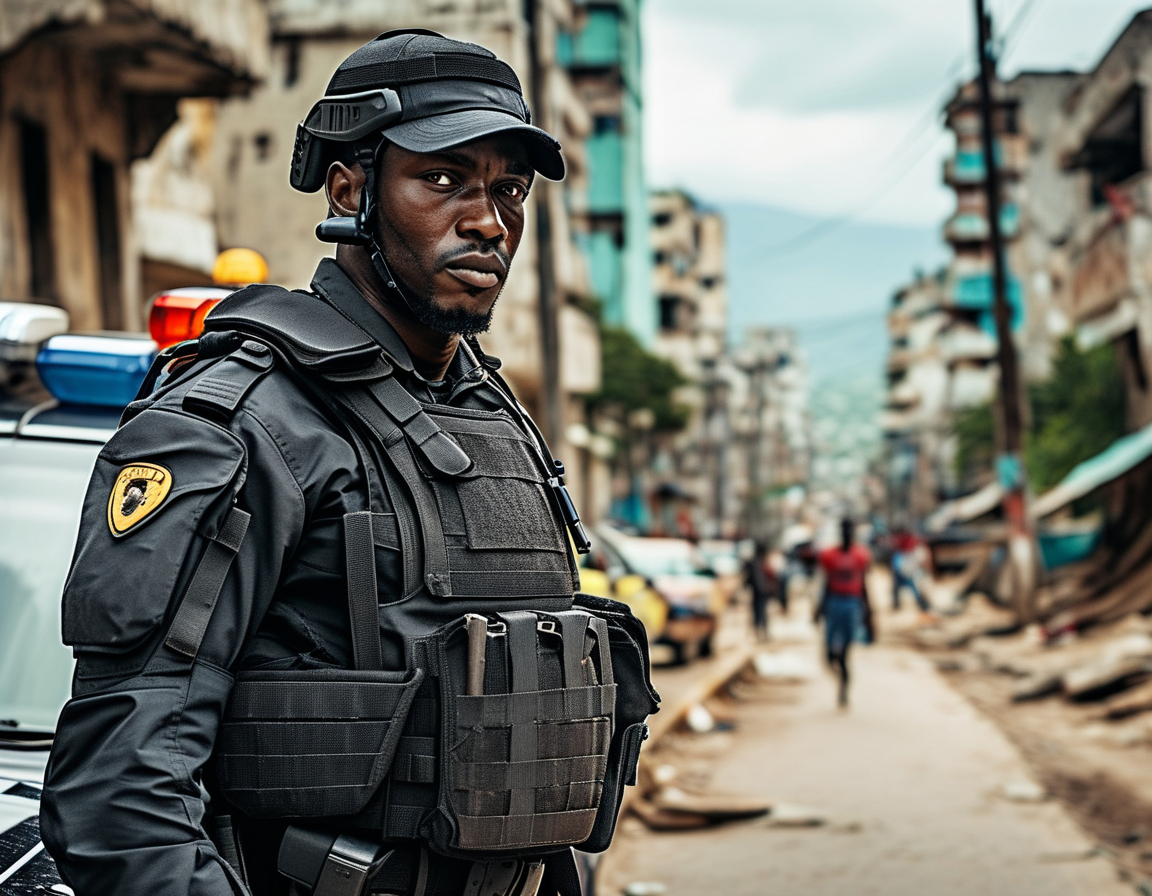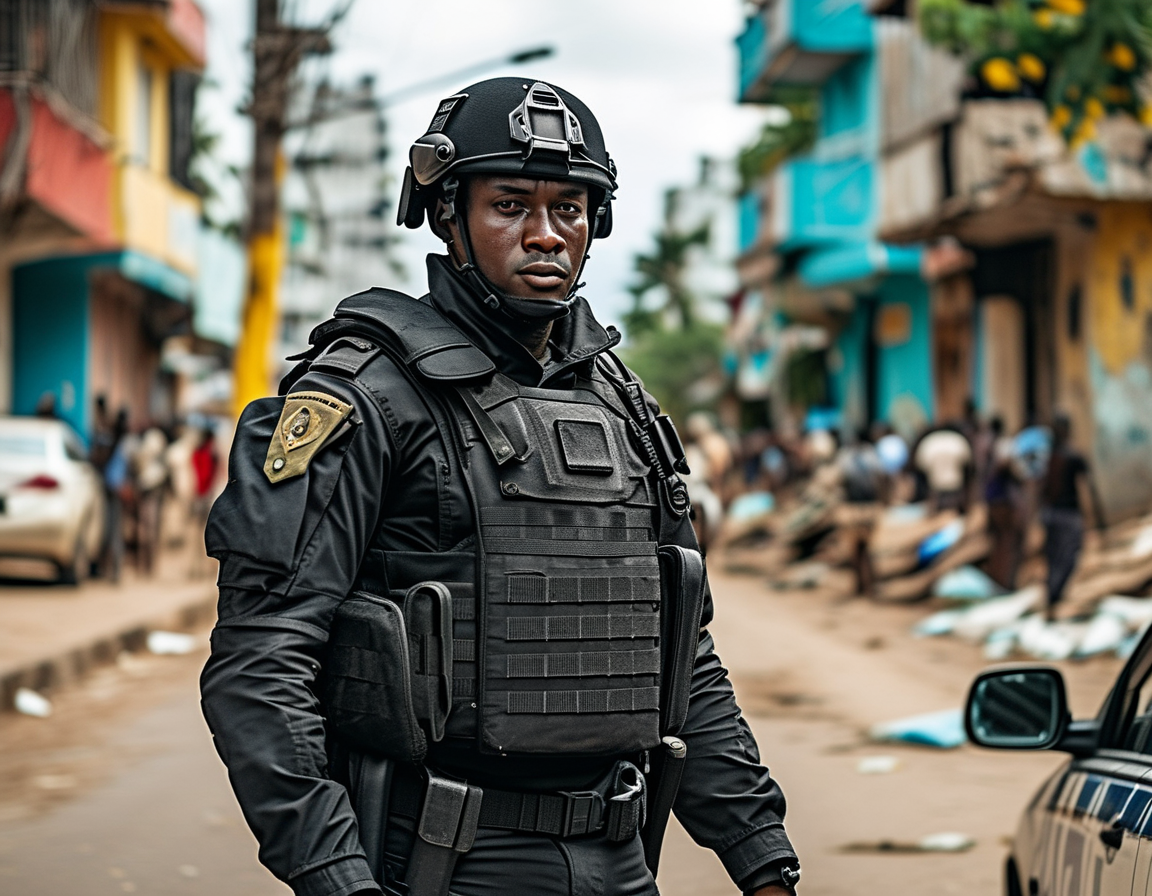Kenya deploys police officers to Haiti to combat rampant gang violence. Yet, a recent ambush highlights the risks they face. In Pont-Sondé, a Kenyan officer has gone missing after a gang attack. How did we reach this point?

The facts are unsettling. A Kenyan officer was part of a multinational effort aimed at stabilizing Haiti. This mission, however, has proven perilous. The officer’s disappearance signals a troubling reality. It raises questions about the efficacy of international peacekeeping forces in regions beset by chaos.
When I first read the news, a sense of disbelief washed over me. How can such brave individuals be endangered while trying to help? They arrive with hope, yet encounter violence instead. It’s a stark reminder of the volatility of security operations in areas like Haiti. So what are the challenges police officers face there?

The incident occurred when Kenyan officers were assisting a Haitian police vehicle. It was stranded in a ditch. Just as they were providing aid, suspected gang members attacked. This type of ambush illustrates how tactics have evolved in urban warfare. The gangs are increasingly bold, showing a complete disregard for human life. They wait patiently, ready to harm those who come to protect the innocents.
In light of this attack, specialized teams have been deployed. Their mission? To search for the missing officer. The stakes have never been higher. The issues surrounding personal safety in such missions cannot be overstated. The necessity of providing a secure environment falters when dire incidents like this happen.

But let’s switch gears. Not only is this unfortunate for the officers, but what about the families? They must endure crippling uncertainty. Reports suggest the missing officer could be dead, though this remains unconfirmed. The emotional toll on families can be tremendous. Have we thought enough about their plight?
Here’s another sobering fact: this is not the first time tragedy has struck. Last month, another Kenyan officer was killed in action. Samuel Tompoi Kaetuai, just 26, was fatally injured during an operation. His life was cut short—another statistic in an alarming narrative. It makes you question the ongoing commitment of the Kenyan officers. Are they willing to risk their lives in such a chaotic environment?
Kenya has sent at least 800 police officers under the MSS mission. They stand against gangs that control much of Port-au-Prince and rural areas. The gang violence in Haiti has grown rampant. Already, over 5,500 lives have been lost to gang-related violence in 2024 alone. The numbers are staggering.
What drives them to stay? Is it a sense of duty or perhaps a belief in justice? Many Kenyans are calling for their officers to return home. Yet, the leaders insist on completing their mission. How do we reconcile these conflicting feelings?
In March, the Kenyan National Police Service confirmed the missing officer’s status. They remain committed to fulfilling their mandate. This commitment reveals a complexity in international relations and community impact. The mission reflects a deeper global issue surrounding safety and security in troubled regions. What does that mean for future interventions?
The bottom line is clear: the struggle for peace in Haiti is ongoing. The sacrifice of these officers needs recognition. Their bravery must be lauded. But as we analyze this story, we must confront uncomfortable truths about global peacekeeping missions. How much longer can we expect them to endure? How do we push for meaningful change?
Leave a Comment